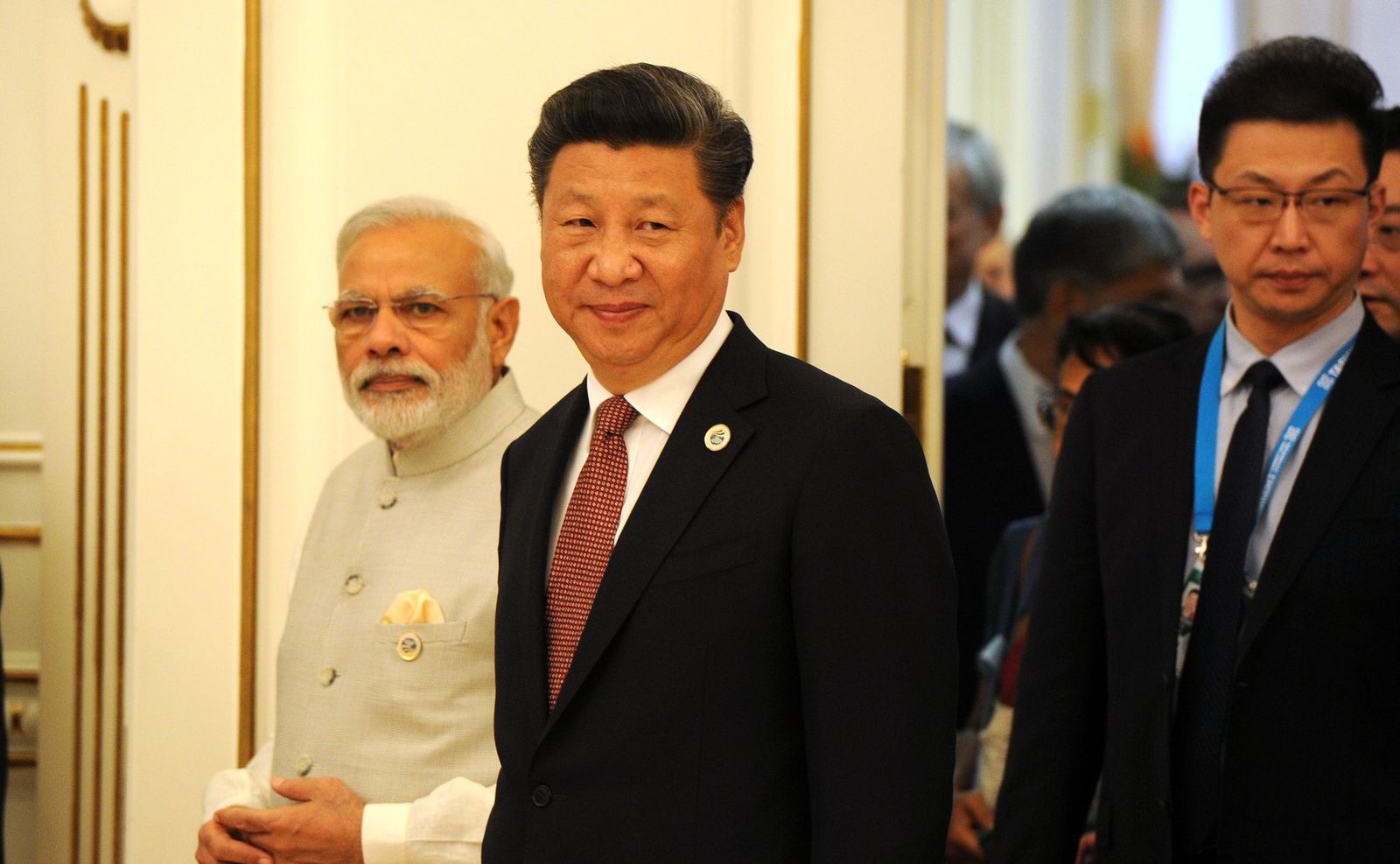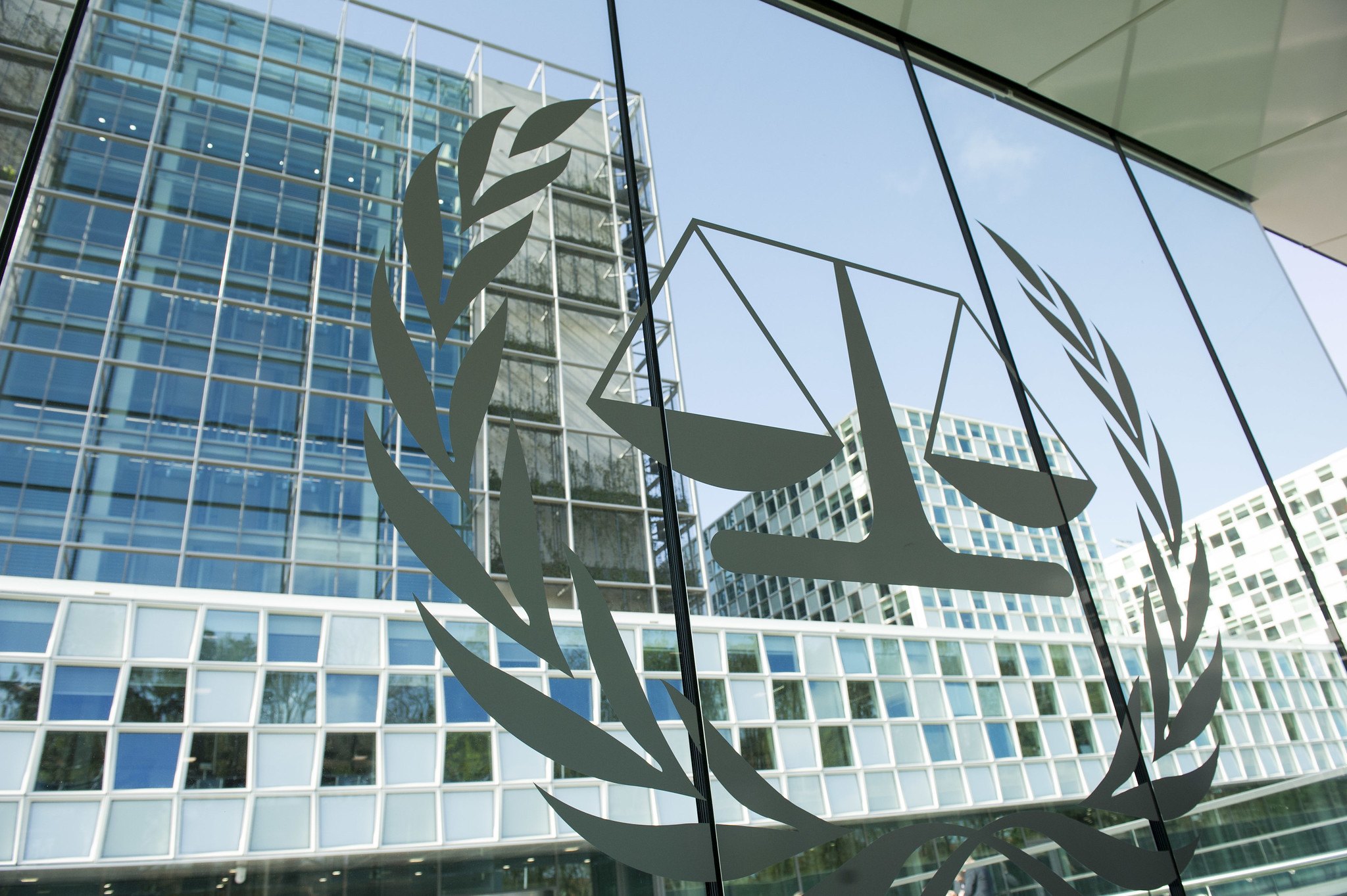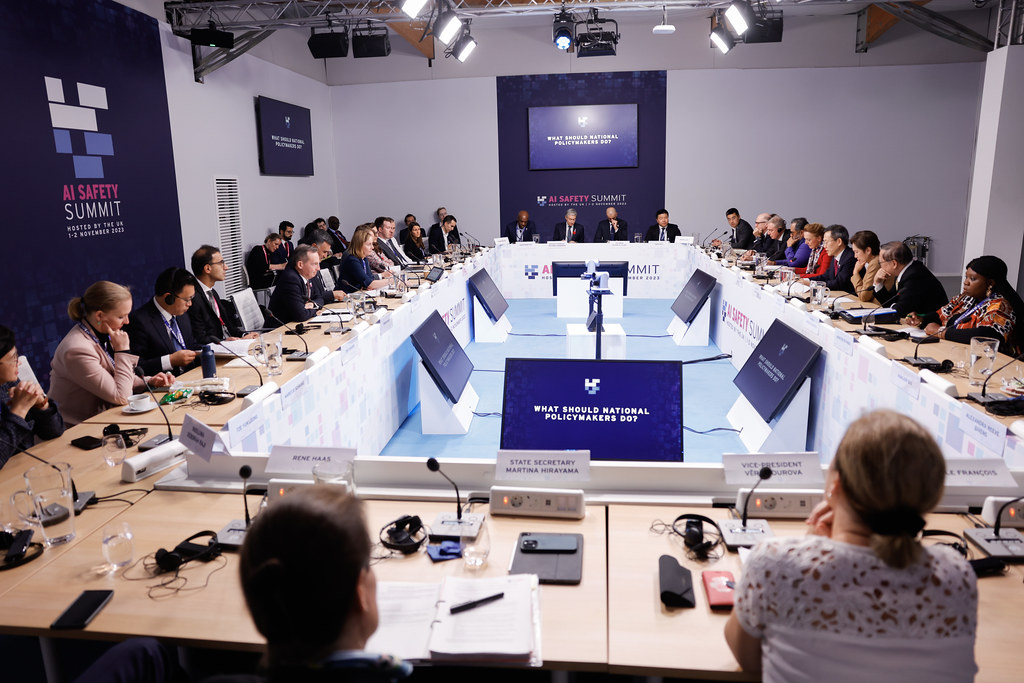Sinotech: New Chinese Export Rules Throw a Wrench Into TikTok Sale
The latest China tech and trade news.

Published by The Lawfare Institute
in Cooperation With

On Aug. 28, China amended its list of technologies subject to export controls, adding 23 categories to the list. Analysts widely believe two of these additions could impact ByteDance’s ability to sell U.S. operations of the social media app TikTok to foreign buyers, a transaction now under negotiation. Specifically, the new list covers civilian-use technologies involving interactive interfaces that rely on artificial intelligence, and personalized notification and recommendation systems driven by data analysis. China-based companies selling the use of such technologies overseas, according to China’s rules, must seek permission from Beijing. This is the first time since 2008 that China has revised the export-control rules.
It is not yet clear how these updates will affect any cross-border sale of TikTok—or whether they will lead to China’s blocking the sale altogether. However, many commentators have argued that if Beijing does permit TikTok’s sale, the new laws would let Chinese officials review the deal terms and add conditions. According to Scott Kennedy, senior adviser on China at the Center for Strategic and International Studies, with the new rules, China is “saying, ‘We get a say in this [transaction] and we’re not going to be bystanders.’” Chinese commentators, meanwhile, have lauded the rules as cementing China’s authority to approve technology sales. One Chinese professor wrote in state-owned news outlet Xinhua that the new rules could require ByteDance to obtain a license to sell TikTok. Xinhua also quoted a government official warning TikTok to “seriously and carefully consider” suspending sales talks.
So far, it is also too early to tell whether the new rules will influence ByteDance’s own decision to proceed with an acquisition for the U.S. operations of TikTok. Early reporting, however, has stated that the changes are prompting ByteDance’s founder Zhang Yiming to have second thoughts on the sale.
China’s new export rules throw a wrench into TikTok’s sales negotiations, which seemed to be nearing completion before the rule change. ByteDance has been in talks with American companies about selling TikTok since July, when reports broke that President Trump was planning to ban TikTok in the United States. These talks progressed after Trump, on Aug. 6, signed an executive order effectively banning TikTok unless ByteDance divested from it by Sept. 20—a deadline later extended to Nov. 12. By Aug. 31, anonymous sources within TikTok claimed ByteDance had selected a U.S. buyer and an announcement of the deal was imminent, although the company has announced nothing yet. Other reporting from August, which suggested a deal was close, indicated the sale would price TikTok’s U.S. operations at $20 billion to $30 billion. (In recent days, Microsoft and Walmart’s joint bid for TikTok looked most likely to prevail, though other buyers have expressed interest.)
Trump’s executive order and TikTok’s sales negotiations have heightened recent U.S.-China tensions, a trend that Beijing’s efforts to weigh in on the deal could exacerbate. Some Chinese media outlets refer to TikTok’s forced sale as “theft,” and many observers in China see Trump’s order as an abrogation of Chinese sovereignty. ByteDance has fought back against the order, too. Last month, TikTok sued Trump in U.S. federal court over the order, arguing that it deprived the company of due process and groundlessly deemed TikTok a national security threat. Trump’s administration, for its part, claims that a Chinese-owned TikTok threatens security because Beijing could force ByteDance to turn over American user data. While many lawmakers and others in the U.S. foreign policy community share these concerns, there is significant debate over how much danger TikTok poses. Some observers, for instance, contend that TikTok’s risk is insignificant, arguing that the data TikTok collects has little to no security value.
All of these developments could have a chilling effect, specifically, on Chinese firms operating in U.S. markets. TikTok’s challenges from U.S. regulators, many have argued, will discourage other Chinese tech firms from expanding their presence in the United States, or entering the country at all. Recent statements by the Trump administration on Chinese firms, besides TikTok, may reinforce this trend. In August, for instance, Secretary of State Mike Pompeo announced that Washington is exploring further steps to prevent American data from reaching Chinese companies like Alibaba, Baidu and Tencent.
U.S. Sanctions Two Dozen Chinese Companies for Building Military Infrastructure in the South China Sea
On Aug. 26, the Trump administration added 24 Chinese companies to a Commerce Department blacklist for helping the Chinese government “build military islands in the South China Sea.” The move effectively bars the Chinese firms from purchasing U.S.-made components, unless sellers obtain a special license from the Commerce Department. The blacklisted companies include state-owned enterprises that provide services in dredging, construction, navigation and specialized communications technologies, respectively. Among the companies listed are five subsidiaries of the China Communications Construction Company, which provides a range of overseas infrastructure projects affiliated with China’s Belt and Road Initiative, a colossal government program designed to facilitate Chinese investment overseas.
In a statement, the Department of Commerce said that the companies had supported China in constructing military outposts—which have included air defense systems and anti-ship missile installations—that violated the sovereignty of other countries in the region, including the Philippines. While the Trump administration has added a number of Chinese companies to the entity list over other national security and human rights concerns, the fresh wave of sanctions is the first to target companies that support the Chinese government’s aims in the South China Sea.
In a statement released the same day, the State Department said it would implement visa restrictions on Chinese citizens “responsible for, or complicit in, either the large-scale reclamation, construction, or militarization of disputed outposts in the South China Sea.”
These measures come as tensions between the U.S. and China have risen, both in the South China Sea and in East Asia more broadly. Secretary of State Mike Pompeo issued a statement on July 13 rejecting most of China’s maritime claims in the South China Sea. The statement claims that “Beijing has offered no coherent legal basis for its ‘Nine-Dashed Line’” geographic claim in the South China Sea. In late August, China launched military exercises near the disputed Paracel Islands, prompting Hanoi to accuse Beijing of violating Vietnam’s sovereignty. On Aug. 26, China accused the United States of sending a U-2 plane to spy on its military exercises in an unspecified location in northern China. The U.S. confirmed that its plane had flown through the region but said the flight was legal under international law. On Aug. 27, the U.S. sent destroyer ships into the South China Sea, where they engaged in “freedom of navigation” exercises, designed to demonstrate the U.S. commitment to protecting navigational rights in the contested waterways.
Since then, China has stepped up naval exercises in the South China Sea and announced further plans for exercises in the East China Sea. Beijing-based think tanks, meanwhile, say that U.S. spy plane activity has escalated dramatically in response to China’s military exercises.
On Sept. 8, after Secretary of Defense Mark Esper visited the country, the Republic of Palau—located in the Pacific, east of the Philippines—announced that it had invited the United States to build ports and military installations on its territory. Such a military base could allow U.S. forces to quickly deploy to the South China Sea in the event of a conflict. More broadly, analysts say that U.S. military installations in Palau would be another step toward implementing the 2018 National Defense Strategy, which calls for a greater U.S. military footprint in Asia to counter rising Chinese influence in the region. While the United States has not commented on the offer, the U.S. ambassador to Palau, John Hennessey-Niland, said the U.S. looked forward to deepening its partnership with Palau.
In Other News
On Sept. 8, China and India accused each other of shooting warning shots at their disputed border, marking the first time in decades that arms had been fired in the region. Given differing accounts from both sides and limited independent reporting on the issue, it remains unclear under what circumstances the shots were fired. The incident marks the most significant escalation in tensions between the two militaries since a clash in June that resulted in dozens casualties. The Global Times, a mouthpiece for the Chinese Communist Party, said that Indian troops had crossed the line of actual control—which separates territory controlled by each side—and “outrageously fired warning shots at Chinese border defense patrol personnel who were attempting to negotiate.” Meanwhile, Indian military sources claimed that Indian troops returned warning shots after Chinese soldiers fired on Indian positions. The incident suggests the breakdown of a long-standing protocol that neither side will use arms at the contested border. Indian and Chinese military forces have maintained a line of communication despite the incident. India’s external affairs minister, S. Jaishankar, is expected to hold talks with his Chinese counterpart, Wang Yi, this week.
Disney has come under criticism after reports indicated that Mulan—the entertainment giant’s blockbuster remake of a Chinese tale about a heroic princess—was filmed in Xinjiang, where China operates mass detention and forced labor centers for Uighur Muslims. In the film’s credits, Disney thanks several Chinese government entities that have supported the mass detention of Uighurs, including the Chinese Communist Party’s propaganda commission in Xinjiang, which produces disinformation supporting the camps. Analysts have argued that the size of China’s domestic movie market may mean that Hollywood studios feel pressure to remain silent on Beijing’s human rights abuses.
China appears to be clamping down further on foreign journalists. China announced on Sept. 8 that it had detained Australian journalist Cheng Lei, who worked for CGTN, a state-controlled Chinese news outlet. Chinese authorities said that Cheng’s arrest was in connection with national security concerns but failed to provide details. China then temporarily placed an exit ban on two Australian journalists working in China. The two journalists were allowed to leave the country after high-level negotiations between Canberra and Beijing. Separately, China’s Foreign Ministry declined to renew press credentials for journalists working at the Wall Street Journal, CNN and Bloomberg, among other outlets. The Foreign Ministry informed affected journalists that they could continue living and working in China until Nov. 6. Analysts say that China’s move may signal that Beijing is prepared to retaliate, should the Trump administration take further action against Chinese state-affiliated media outlets operating in the United States. The move represents the latest escalation of media-related tensions between Washington and Beijing. Previously, the Trump administration had required Chinese media outlets affiliated with Beijing to register as foreign agents, a move that prompted China to expel a number of U.S. journalists.
Commentary
In the New York Times, Jessica Chen Weiss and Ali Wyne urge the United States not to adopt a nationalistic approach to U.S.-China relations, even as China assumes this posture. In Foreign Affairs, Richard Haass and David Sacks write that the United States must redouble its support for Taiwan—quickly and unambiguously. Writing for CNBC, Sen. Marco Rubio calls on the United States to collaborate with allies on developing 5G networks without China and Huawei. In The Diplomat, Valérie Niquet and Walter Lohman contend that Chinese leadership of the global order is neither inevitable nor desirable—something that the coronavirus pandemic has revealed.
For the Brookings Institution, Jamie Horsley argues that the United States and China need to stop blaming each other over the coronavirus and work together to defeat the pandemic. The Wall Street Journal editorial board comments that China’s recent poor treatment of countries like Australia undermines its standing abroad. In The National Interest, Douglas H. Paal examines how Taiwan relations have become a central element of Trump’s approach to China. For the China Leadership Monitor, David Dollar explores how the global pandemic exposes economic fault lines in China and could alter the country’s long-term growth prospects. In the South China Morning Post, Tom Plate counsels China to avoid making the same diplomatic missteps that the United States has made with Trump’s aggressive approach to foreign policy.
For Lawfare, Shira Anderson and Sean A. Mirski unpack the Chinese government’s options for responding to coronavirus-related litigation in U.S. courts. On the Lawfare Podcast, Scott R. Anderson spoke to Kathleen Claussen and Timothy Meyer about presidential tariff powers and how Trump has used his authorities to wage trade wars. On the ChinaTalk Podcast, Jordan Schneider spoke to Tanner Greer about traditions and ideologies that influence President Xi and the Chinese Communist Party. He also spoke to Ali Wyne and Jessica Chen Weiss about China’s geopolitical objectives and the prevailing views in Washington on how to confront China.






